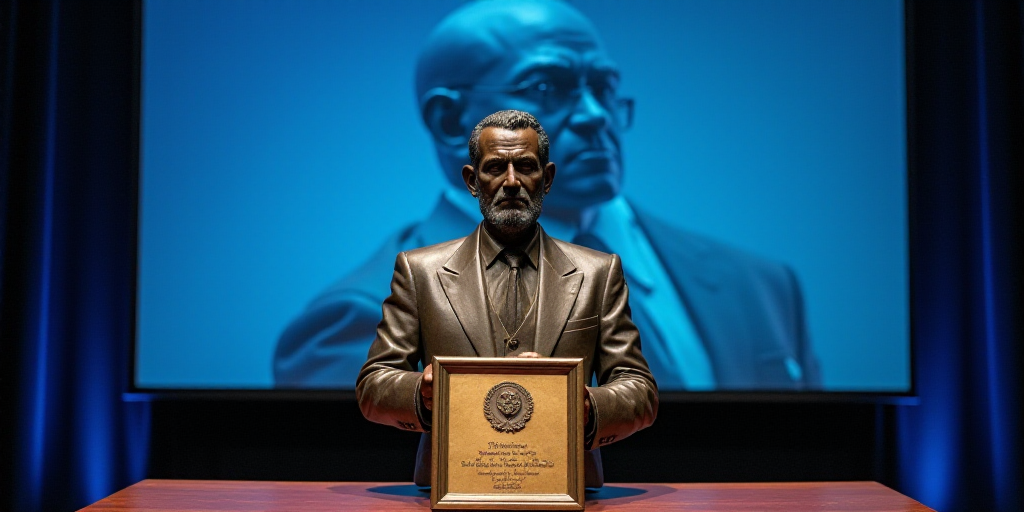Introduction
The Royal Swedish Academy of Sciences has announced that Susumu Kitagawa, Richard Robson, and Omar Yaghi have been awarded the 2025 Nobel Prize in Chemistry “for developing metal-organic frameworks (MOFs).”
The Scientists and Their Contributions
Susumu Kitagawa, a professor at the University of Kyoto in Japan, Richard Robson, a professor at the University of Melbourne in Australia, and Omar Yaghi, a professor at the University of California, Berkeley in the United States, have collectively revolutionized the field of chemistry through their work on MOFs.
Kitagawa, originally from Japan; Robson, born in the United Kingdom but raised in Australia; and Yaghi, of Jordanian-American descent whose parents were Palestinian refugees living in Amman, Jordan, have each brought unique perspectives to their groundbreaking research.
Omar Yaghi’s Background
Yaghi, whose parents were Palestinian refugees residing in Amman, Jordan, moved to the United States as a teenager. His team successfully created a crystal-like structure using metal atoms and demonstrated that these structures were robust, durable, and highly porous.
Metal-Organic Frameworks (MOFs)
The laureates have developed MOFs, which are porous materials with vast internal surfaces. These structures can accommodate gases and other chemical substances, enabling various applications such as capturing water from desert air, trapping carbon dioxide, or storing toxic gases.
According to the Nobel Committee, some MOF materials possess an extraordinary large surface area: a porous material the size of a sugar cube can contain as much surface area as a football field.
“A small amount of this material can be like Hermione’s handbag in Harry Potter. It can store enormous quantities of gas in a tiny volume,” stated Olof Ramstrom, a member of the Nobel Committee for Chemistry.
Impact and Recognition
The Nobel Prize comes with a monetary reward of 11 million Swedish kronor (approximately $1.2 million) and the prestige of being one of the most esteemed scientific awards globally.
“Through their development of MOFs, the laureates have provided chemists with new opportunities to tackle some of the challenges we face,” the Royal Swedish Academy of Sciences said in a statement.
Kitagawa’s Aspirations
At the Nobel press conference, Kitagawa expressed his deep honor for the award. “My dream is to capture air and separate it, for example, into CO2, oxygen, water, or something similar, and convert it into useful materials using renewable energy,” he said.
Historical Context
Established by the will of Swedish inventor and entrepreneur Alfred Nobel, these prizes have been awarded annually since 1901 (with some interruptions due to world wars) for outstanding achievements in science, literature, and peace.
Nobel himself was a chemist, and his contributions to the field helped accumulate his wealth through the invention of dynamite in the 19th century. The Nobel Memorial Prize in Economic Sciences was later added, funded by the Swedish central bank.
Previous Nobel Prizes in Chemistry
The Chemistry Nobel is the third prize announced this year, following the tradition of being awarded after the Physics and Literature prizes. Notable past Chemistry laureates include those who discovered nuclear fission, developed DNA sequencing techniques, and studied yeast.
The 2024 Chemistry Prize was awarded to American scientists David Baker and John Jumper, along with British researcher Demis Hassabis, for their work on protein structure decodification and the creation of novel structures that have advanced fields like drug development.
Key Questions and Answers
- Who won the 2025 Nobel Prize in Chemistry? Susumu Kitagawa, Richard Robson, and Omar Yaghi for their development of metal-organic frameworks (MOFs).
- What are metal-organic frameworks (MOFs)? MOFs are porous materials with vast internal surfaces, capable of accommodating gases and other chemical substances for various applications.
- Why are MOFs significant? MOFs have extraordinary large surface areas, enabling them to capture water from desert air, trap carbon dioxide, or store toxic gases.
- Who are the laureates and their backgrounds? Susumu Kitagawa (Japan), Richard Robson (UK-born, raised in Australia), and Omar Yaghi (Jordanian-American whose parents were Palestinian refugees) have collectively revolutionized the field of chemistry.
- What is the monetary reward and recognition for winning the Nobel Prize in Chemistry? The prize comes with 11 million Swedish kronor (approximately $1.2 million) and the prestige of being one of the most esteemed scientific awards globally.






